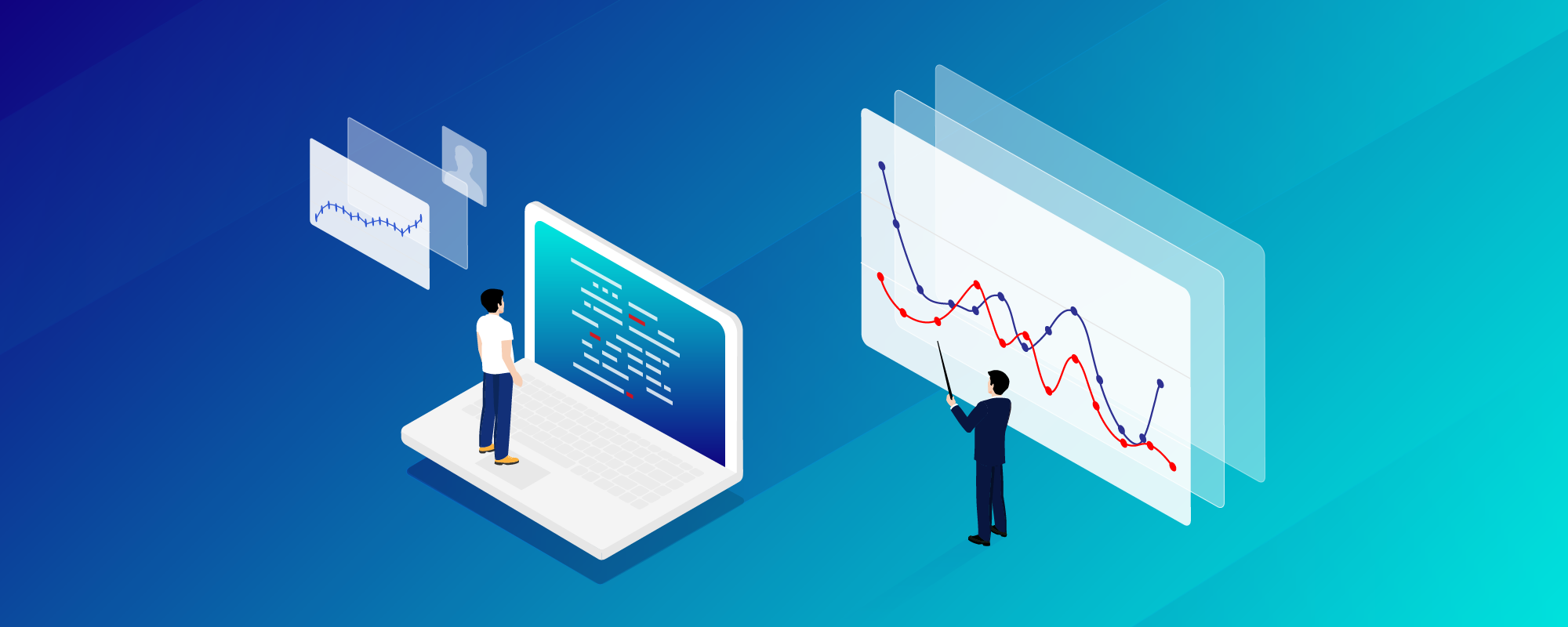Big data analytics has been in huge demand, and with big data analytics becoming a significant driver for the business intelligence industry, the need for BI applications has increased too. By 2021, the big data market is estimated to reach around $90 billion, and big data as a service could touch approximately $28 billion.
Although the explosion in data has given rise to different streams like data science, when it comes to business intelligence, the demand will continue as there is always a need for information discovery solutions for the data. So, naturally, people will want to know more about it. Below are some of the FAQs for beginners who would like to know more about business intelligence and would want to start a career in it:
What is the future of business intelligence (BI)?
Business intelligence is a technology-driven process where one helps businesses in converting the available data into knowledge. This knowledge is delivered to the clients or the stakeholders who read and analyse data to make decisions. With the massive data available in the business ecosystem, one can use business intelligence tools to achieve their business success.
As big data shows no signs of slowing down, the BI software/tools are becoming more collaborative, more proactive, more equipped and more insightful to handle it. And with AI and machine learning advancements, BI is going to be benefitted a lot in terms of critical, timely insights for new operating, and monetisation models.
As for the job outlook, according to the US Bureau of Labor Statistics, the demand for qualified BI analysts and managers is expected to grow to 14% by 2026 with overall data professionals to rise to 28% by 2020. Also, according to Bereo Inc., the BI market is expected to grow at a CAGR of 7.6% in 2020.
What are some of the skills required for BI?
- Business Decision Making: This is a fundamental skill for any business analyst, where the person needs to have an ability to understand and communicate in the business domain to the particular industry and organisation that are being analysed. The personnel needs to have a solid foundation of industry and organisation’s business model, objectives, and strategies along with its key issues and competitors.
- Data Analysis & Modelling: This is the ability to understand data and information and convert them into insights. Data analysis and modelling involve conceptual thinking using high-level data models.
- Good knowledge of analytical tools like Microsoft Excel, PowerPoint and other standard visual modelling tools.
- SQL: Organisations nowadays post SQL as an essential requirement for their hiring and learning SQL is imperative as it is one of the best and popular database languages.
- Learning visualisation Software: Learning a few of the visualisation software can always be handy for business analysts. Some of the visualisation software are Sisense, Looker, Qlik Sense, Zoho, Microsoft BI, and Tableau. However, Tableau is the one that has been mentioned the most.
What are the best resources to learn business intelligence?
Naturally, if one wants to pursue a career in business intelligence, they look towards various resources along with courses and certifications.
Below are some of the resources
- Harvard University’s Online Business Intelligence Courses
- Digital Vidya Business Analytics with Excel Online Certification Course
- edX Business Intelligence Courses
- Degrees and Certificates in Business Intelligence (Coursera)
- Business Intelligence Courses (Microsoft Virtual Academy)
Below are some certifications provided by the International Institute of Business Analysis (IIBA):
- Entry Certificate in Business Analysis (ECBA)
- Certification of Capability in Business Analysis (CCBA) with 2-3 years of BI experience
- Certified Business Analysis Professional (CBAP) 5+ years experience required
What are the most popular job roles in business intelligence?
With the expansion of the business intelligence field, it is no longer limited to analysis. As more domains have started to adopt business intelligence, various subsets have emerged:
- Business Analyst: These analysts mine and collect data in multiple ways using the software. And then analyse the same on the industry trends and competitors in order to evaluate and communicate it with upper-level professionals.
- Business Intelligence Project Manager: A BI project manager establishes the plans for a project after consulting other professionals. These project plans usually define requirements, schedule, and resources.
- Business Intelligence Specialists: The specialists monitor strategic design and the maintenance of BI activities.
- Business Intelligence Consultants: These consultants apply BI solutions and manage projects for various clients.
- Business Intelligence Director: A BI director will be leading the design and development of business intelligence activities for the organisation.
What is the difference between business intelligence (BI) & analytics?
With BI getting more prominent, there has been a rise in confusion between business intelligence (BI) and business analytics (BA).
By definition:
Business Intelligence: It uses past and present to drive current business needs.
Business Analytics: Analyses only the past data to drive current needs.
Usage:
Business Intelligence: Runs current business operations.
Business Analytics: Changes business operations and improves productivity.
Ease of Operations:
Business Intelligence: For current business operations.
Business Analytics: For future business operations.
Field:
Business Intelligence: BI comes under Business Analytics.
Business Analytics: Contains data warehouse, information management etc.
What is the average salary of various BI roles?
According to various job portals; the average salaries of various BI job roles in India are:
- BI Analyst- ₹ 7,90,532 per year
- BI Manager- ₹ 10,07,544 per year
- BI Specialist- ₹12,81,082 per year
- BI Consultants- ₹10,76,000 per year
- BI Director- ₹30,00,000 per year
What are some common machine learning interview questions?
As one gains more knowledge and decides to land a business intelligence job and starts applying to job profiles, they have to start preparing for the interview.
Below are some of the common interview questions asked in a business intelligence interview:
- What are the control and data flow?
- What is the difference between data transformation services and SQL Server Integration Services (SSIS)?
- Define SQL Server Integration Services, and how does it relate with SQL Server?
- How to log SSIS Executions?
- How do you deploy SSIS packages?
- How does error-handling work in SSIS?
- What is OLAP (Online Analytical Processing)?
- Differentiate between OLAP and ETL tools.
- What is a data warehouse?
- What are different types of data warehouse systems
- What is the difference between data warehouse and transactional system?
- What is database schema? What are its types?





















































































